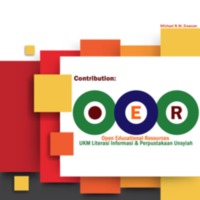Mind, Body, World: Foundations of Cognitive Science
Dublin Core
Subject
Description
Cognitive science arose in the 1950s when it became apparent that a number of disciplines, including psychology, computer science, linguistics, and philosophy, were fragmenting. Perhaps owing to the field’s immediate origins in cybernetics, as well as to the foundational assumption that cognition is information processing, cognitive science initially seemed more unified than psychology. However, as a result of differing interpretations of the foundational assumption and dramatically divergent views of the meaning of the term information processing, three separate schools emerged: classical cognitive science, connectionist cognitive science, and embodied cognitive science.
Examples, cases, and research findings taken from the wide range of phenomena studied by cognitive scientists effectively explain and explore the relationship among the three perspectives. Intended to introduce both graduate and senior undergraduate students to the foundations of cognitive science, Mind, Body, World addresses a number of questions currently being asked by those practicing in the field: What are the core assumptions of the three different schools? What are the relationships between these different sets of core assumptions? Is there only one cognitive science, or are there many different cognitive sciences? Giving the schools equal treatment and displaying a broad and deep understanding of the field, Dawson highlights the fundamental tensions and lines of fragmentation that exist among the schools and provides a refreshing and unifying framework for students of cognitive science.
Examples, cases, and research findings taken from the wide range of phenomena studied by cognitive scientists effectively explain and explore the relationship among the three perspectives. Intended to introduce both graduate and senior undergraduate students to the foundations of cognitive science, Mind, Body, World addresses a number of questions currently being asked by those practicing in the field: What are the core assumptions of the three different schools? What are the relationships between these different sets of core assumptions? Is there only one cognitive science, or are there many different cognitive sciences? Giving the schools equal treatment and displaying a broad and deep understanding of the field, Dawson highlights the fundamental tensions and lines of fragmentation that exist among the schools and provides a refreshing and unifying framework for students of cognitive science.
Creator
Publisher
Contributor
Cut Rita Zahara
Rights
Creative Commons
Type
Files
Collection
Citation
Michael Dawson, “Mind, Body, World: Foundations of Cognitive Science,” Open Educational Resources (OER) , accessed March 1, 2026, https://oer.uinsyahada.ac.id/items/show/881.


